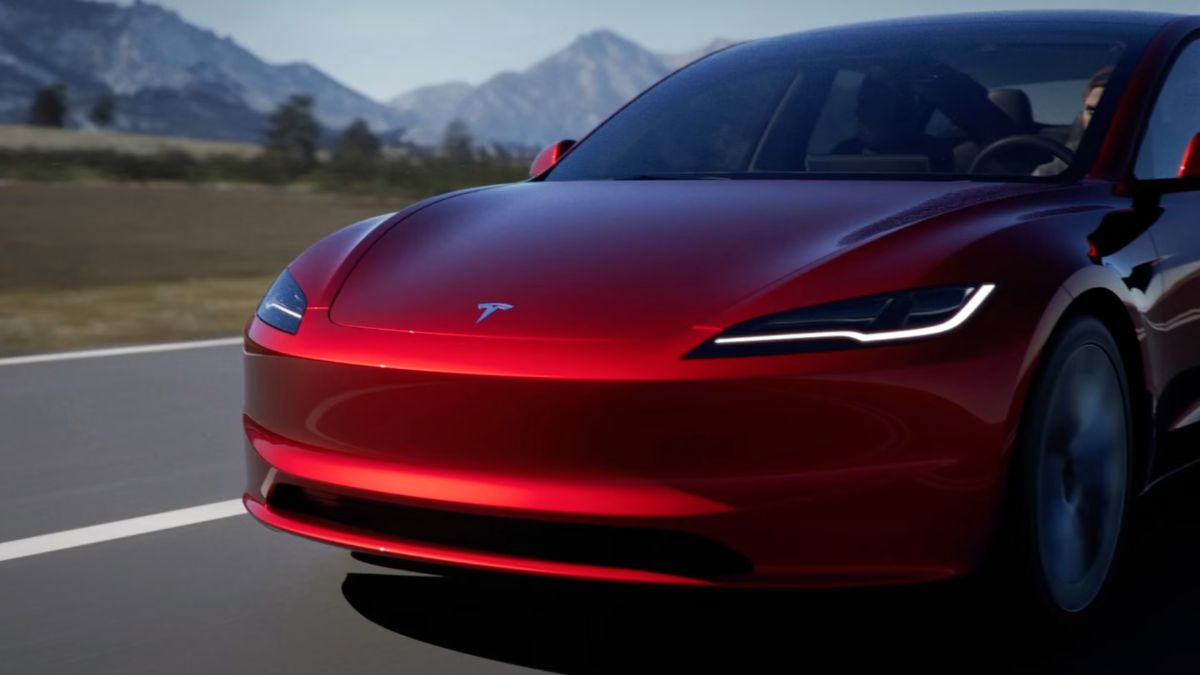Just In
- 10 hrs ago

- 1 day ago

- 1 day ago

- 1 day ago

Don't Miss
- Finance
 3 Bonus, Rs 50/Sh Payout, Bangalore-Based IT Firm Makes Big AI Announcement Ahead Of Q4, Dividends
3 Bonus, Rs 50/Sh Payout, Bangalore-Based IT Firm Makes Big AI Announcement Ahead Of Q4, Dividends - Sports
 MI vs CSK, IPL 2024 Match 29: Award Winners, Man of The Match, Post-Match Presentation, Scorecard & Records
MI vs CSK, IPL 2024 Match 29: Award Winners, Man of The Match, Post-Match Presentation, Scorecard & Records - Lifestyle
 Chaitra Navratri 2024 Day 7: Maa Kalratri Puja Vidhi, Vrat Katha, Mantra and Aarti Lyrics
Chaitra Navratri 2024 Day 7: Maa Kalratri Puja Vidhi, Vrat Katha, Mantra and Aarti Lyrics - News
 Vintage Thala: Watch MS Dhoni Hitting 3 Sixes To Hardik Pandya At Wankhede In IPL MI vs CSK Match
Vintage Thala: Watch MS Dhoni Hitting 3 Sixes To Hardik Pandya At Wankhede In IPL MI vs CSK Match - Movies
 Aavesham Worldwide Box Office Collection: Fahadh Faasil's Film Approaches ₹50 Crore Mark Globally
Aavesham Worldwide Box Office Collection: Fahadh Faasil's Film Approaches ₹50 Crore Mark Globally - Education
 10 Reasons Gen Z Should Be Grateful to Dr. B.R. Ambedkar
10 Reasons Gen Z Should Be Grateful to Dr. B.R. Ambedkar - Automobiles
 Simple Steps To Keep Car Audio System In Peak Condition: Top Maintenance Tips
Simple Steps To Keep Car Audio System In Peak Condition: Top Maintenance Tips - Travel
Maximise Your First Indian Adventure With These Travel Tips
New Tech Can Amplify Smartphone Battery Life, But Will Manufacturers Use It?
Smartphone battery is one of the top reasons why people keeping changing their devices. Just like all batteries, smartphone batteries degrade over time, cutting short the smartphone life eventually. Things are beginning to change now as researchers have found a way to boost a battery's lifetime by redesigning its structure and components.

Smartphone Battery Life Extension
A team of researchers from the Japan Advanced Institute of Science and Technology (JAIST) have developed a new technology that could exponentially increase a battery's life. The researchers discovered that the short life of batteries is mainly because of the design of the lithium-ion batteries found on smartphones.
The team, led by Professor Noriyoshi Matsumi, includes Professor Tatsuo Kaneko, Senior Lecturer Rajashekar Badam, Ph.D. student Agman Gupta, and former postdoctoral fellow Aniruddha Nag. Their findings have been published in the ACS Applied Energy Materials journal as found by EurekaAlert.

The team is investigating a new type of binder made from bis-imino-acenaphthenequinone-paraphenylene (BP) copolymer. Presently, smartphone batteries make use of graphite anodes at the negative terminal to hold the mineral together. However, the polyvinylidene fluoride (PVDF) binder used in most smartphones today has multiple drawbacks that reduce its position as an ideal binding material.
Boosting Smartphone Battery Life
The researchers explain that a half-cell conventional PVDF binder exhibits only 65 percent of its original capacity after 500 charge-discharge cycles. On the other hand, the half-cell using the BP copolymer as a binder showed 95 percent capacity retention after 1700 such cycles, making a massive turnover.

The new finding could have far-reaching consequences that could offer more juice on smartphone batteries and other gadgets like laptops, tablets, and so on. Plus, this could also be a massive altering finding for further use like electric vehicles. The lead researcher also believes that the finding would help those relying on artificial organs.
Smartphone Battery Technology: Will OEMs Make Use Of It?
The smartphone world is one of the most fast-paced with new research and findings rolling out every day. Simply put, your latest smartphone is already outdated the minute you bought it! The research findings have thrown open new doors to extend the life of a smartphone. But will smartphone makers really put this into practical use?
Firstly, there comes the question of costs. A premium smartphone with some of the latest features currently costs at least Rs. 30,000 in India. Of course, you can even get smartphones with massive 6,000 mAh batteries for less than Rs. 20K. However, when it comes to the manufacturing cost with the new battery technology, it's certainly going to shoot up.

Will OEMs Push For Better Battery Life?
That's not all. Smartphone makers rely on buyers to invest in their latest models. And this is possible only when your old phone's battery gives up, forcing you to buy a new one, preferably the latest one for longer shelf life. If the new smartphone battery technology boosted its life, it would be a massive drawback for manufacturers who release new phones almost monthly.
That said, companies like Apple and Samsung are finding new ways to make their technology better for the environment. If the new battery technology helped better protect the environment and reduce e-waste, these companies could invest in it. Ultimately, it would up to us buyers to really buy and use more environment-friendly gadgets.
-
1,29,999
-
22,999
-
64,999
-
99,999
-
29,999
-
39,999
-
-
63,999
-
1,56,900
-
96,949
-
1,39,900
-
1,29,900
-
79,900
-
65,900
-
12,999
-
96,949
-
16,499
-
38,999
-
30,700
-
49,999
-
19,999
-
17,970
-
21,999
-
13,474
-
18,999
-
22,999
-
19,999
-
17,999
-
26,999
-
5,999












































